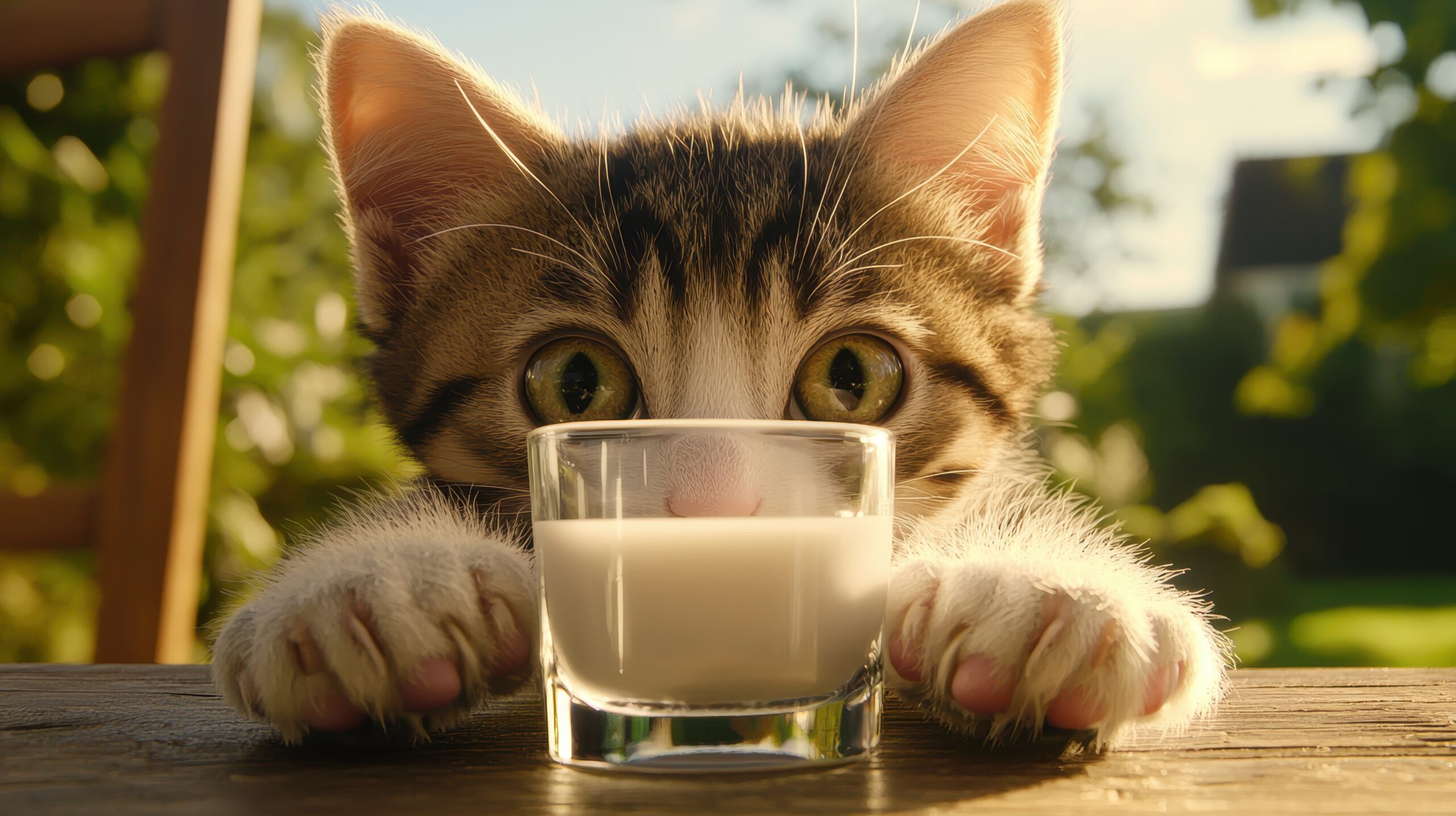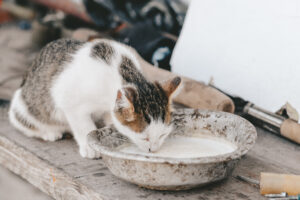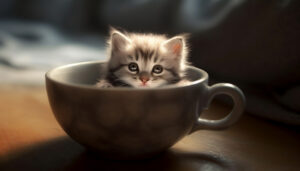
Throughout history cats have become synonymous with contentedly consuming milk from a bowl. The majority of cats demonstrate lactose intolerance in their bodies. Many pet owners remain puzzled about whether lactose-free milk presents a secure option for their cats. The guide provides information about lactose-free milk for cats along with its advantages and proper feeding methods for your feline companion.
Can Cats Drink Milk? This section reveals the actual facts about the myth
The common childhood images of cats drinking milk from cartoons and stories are not accurate because cats actually cannot tolerate lactose in their systems. The majority of cats lack the ability to break down lactose which exists in regular cow’s milk. The inability to properly break down lactose in their system results in lactose intolerance that produces digestive issues and diarrhea and stomach cramps after cats eat dairy products.
Why Are Cats Lactose Intolerant?
Here’s a quick explanation:
- The digestive system of kittens contains the enzyme lactase. The enzyme serves as a vital component in processing the milk their mother provides.
- The lactase enzyme production decreases significantly in adult Cats as they age. A shortage of lactase enzyme makes the digestion of lactose challenging which leads to gastrointestinal distress and related symptoms.
What About Lactose-Free Milk for Cats?
Lactose-free milk represents cow’s milk which undergoes treatment to eliminate or split lactose content. Adult cats along with other lactose intolerant individuals can benefit from lactose-free milk because it becomes easier to break down. The safety profile of lactose-free milk surpasses that of regular milk when given to cats.

The consumption of lactose-free milk by cats is considered generally safe for most adult felines.
Lactose-free milk exists as a safe option for adult cats when consumed in controlled quantities. Several important considerations exist when providing lactose-free milk to your cat.
- The ingredients list should be checked to verify the absence of dangerous additives and sweeteners and flavoring.
- Specialized lactose-free cat milk serves as the best choice because it has been specifically formulated for feline dietary needs.
- Begin with small portions of milk and watch your cat for stomach distress to prevent digestive problems.
According to a 2022 survey approximately 45% of pet owners thought milk was completely safe for cats. Lactose-free milk products have started to dispel the widespread belief that all milk harms cats.
Cats and Dairy Alternatives
Among dairy-free milk options lactose-free milk stands as the most suitable choice but the alternatives differ in their nutritional value. The following table contains a side-by-side comparison of milk substitutes that are safest for cats.
|
Milk Type |
Is It Safe for Cats? |
Reason |
|
Lactose-Free Milk |
✅ Safe in moderation |
Easier to digest for cats with lactose intolerance. |
|
Specialized Cat Milk |
✅ Recommended |
Balanced for your cat’s nutritional needs. |
|
Almond Milk |
⚠️ Use caution |
Low lactose but high in oils. Best avoided as a staple. |
|
Soy Milk |
❌ Not Recommended |
Contains compounds that can disrupt feline hormone levels. |
|
Coconut Milk |
⚠️ Use caution |
High in fat and can upset your cat’s digestion. |
|
Regular Cow’s Milk |
❌ Avoid |
Contains lactose that most cats can’t process. |

The benefits of lactose-free milk for cats exist but you must control its frequency of use. Here are some benefits:
- Lactose-free milk provides digestive relief to cats because it prevents the digestive discomfort that occurs from regular milk consumption.
- Lactose-free milk serves as a useful hydration source for cats who need extra fluid intake particularly for cats who avoid drinking water regularly.
- Lactose-free milk functions as a special occasional reward for cats which avoids gastrointestinal discomfort.
Lactose-free milk should not become the main water source for cats since they require fresh water as their primary hydration source.
Frequently Asked Questions About Cats and Lactose-Free Milk
- Are Cats Permitted to Consume Lactose-Free Milk Regularly?
Small quantities of lactose-free milk are safe for consumption yet daily consumption is not advised. Cats need water for hydration above all else but consuming too much milk leads to additional calories that your pet does not require.
- Is there a proper amount of lactose-free milk that I can give to my cat?
Small amounts of milk should be limited to occasional use in the form of teaspoons. The nutritional requirements of cats differ from humans so milk including lactose-free cannot replace their proper diet.
- Lactose-Free Milk shares no similarities with Cat Milk products.
Cat milk serves feline nutritional requirements whereas lactose-free milk remains human-grade milk which has undergone lactose reduction. The safest option is to provide your cat with cat milk instead of regular lactose-free milk.
- What Are the Signs That My Cat Can’t Tolerate Lactose-Free Milk?
Your cat should not receive lactose-free milk if it develops stomach issues or diarrhea alongside lethargy and appetite loss.
- Apart from milk what alternative treats can I provide my cat?
Freeze-dried chicken treats along with plain cooked meat and cat grass make safe alternatives to milk for your feline companion.
Cat Nutrition Tips for a Healthy, Happy Feline
Your cat’s health depends on proper nutrition therefore lactose-free milk should remain an occasional reward rather than a regular feeding option. Your guide to successful cat feeding and treats planning should include these recommendations:
- Your cat requires essential nutrients which can be obtained from high-quality formulated cat food.
- The health of cats depends heavily on water supply because dehydration leads to dangerous medical complications so maintain fresh water constantly.
- Human foods should never be given to cats except occasional lactose-free milk treats.
- Seek veterinary guidance whenever you doubt what your cat needs for nutrition.
The Conclusion About Lactose-Free Milk As A Suitable Choice For Feline Nutrition
The main inquiry regarding cats consuming lactose-free milk is answered as follows: Yes, they can! The consumption of lactose-free milk provides cats with a safer dairy-based option compared to regular milk products. Your cat should drink fresh water as its primary hydration source while milk serves only as an occasional reward. Observing how your feline responds to nutrition and understanding their dietary requirements provides a path to maintain their wellness and contentment.
If you want to give your pet the correct treatment then continue reading. The best milk brands for cats can be found through consulting your veterinarian or attending cat nutrition sessions.
Leave a Reply